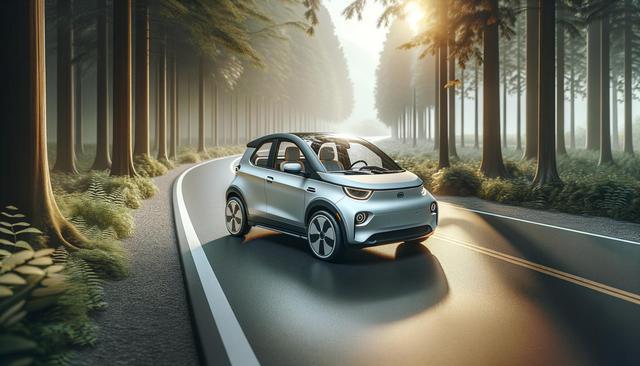Why Small Electric Cars Are Gaining Popularity
Small electric cars are rapidly gaining traction in cities around the world. Their compact size and efficient electric powertrains make them ideal for navigating tight urban spaces and reducing environmental impact. As concerns over pollution and traffic congestion grow, many urban dwellers are turning to these vehicles as a practical and eco-conscious solution. Additionally, governments in various countries are offering incentives and subsidies to encourage the adoption of electric vehicles, further boosting interest in smaller electric models.
Affordability is another key factor. While electric vehicles were once considered expensive, the cost of small electric cars has become more accessible in recent years. Advances in battery technology and increased competition among manufacturers have contributed to lower prices. This shift has made small electric cars a viable option for a broader range of consumers, including students, young professionals, and retirees looking for low-maintenance transportation.
Efficiency and Environmental Benefits
One of the strongest advantages of small electric cars is their efficiency. Electric motors are inherently more efficient than internal combustion engines, converting a higher percentage of electrical energy into motion. This means drivers get more mileage per unit of energy, which translates into lower operating costs over time. For daily commutes and short trips, small electric cars are especially efficient and practical.
From an environmental standpoint, these vehicles produce zero tailpipe emissions, which helps reduce air pollution in densely populated cities. Additionally, many electric cars can be charged using renewable energy sources such as solar or wind, further decreasing their environmental footprint. The production processes for electric vehicles are also evolving to become more sustainable, with manufacturers increasingly using recycled materials and improving battery recycling programs.
Urban Mobility and Parking Convenience
Small electric cars are perfectly suited for city life. Their compact dimensions make them easier to maneuver through traffic and simpler to park in crowded areas. In cities where parking is a premium commodity, being able to fit into tight spaces can be a significant advantage. Some models are even designed to be shorter than traditional compact cars, allowing them to park perpendicular to the curb in certain jurisdictions.
Key benefits for urban mobility include:
- Improved maneuverability in congested streets
- Reduced parking challenges due to smaller footprints
- Lower noise pollution, contributing to quieter neighborhoods
- Eligibility for carpool lanes and dedicated EV lanes in some cities
These advantages make small electric cars a compelling option for city dwellers who need reliable transportation without the hassle of traditional car ownership.
Technology and Features in Small Electric Cars
Despite their size, small electric cars often come equipped with a wide range of modern features. Automakers understand that today’s consumers expect more than just basic transportation. As a result, many small electric vehicles include amenities that enhance comfort, connectivity, and safety. These features are no longer reserved for high-end models but are increasingly standard in compact EVs.
Common features include:
- Touchscreen infotainment systems with smartphone integration
- Advanced driver-assistance systems like lane-keeping assist and automatic emergency braking
- Regenerative braking to enhance energy efficiency
- Customizable drive modes for different conditions
Some models also offer fast-charging capabilities, allowing drivers to recharge the battery to 80% in under an hour at compatible stations. This makes them practical not only for daily commuting but also for occasional longer trips.
Challenges and Considerations
While there are many advantages to small electric cars, potential buyers should also be aware of certain limitations. One of the main concerns is range. Smaller electric vehicles typically have smaller batteries, which can limit the distance they can travel on a single charge. However, for city use and short daily commutes, the range offered by most small EVs is more than sufficient.
Other factors to consider include:
- Availability of charging infrastructure in your area
- Initial purchase price, despite long-term savings
- Limited cargo space compared to larger vehicles
- Performance trade-offs in terms of speed and acceleration
These considerations don’t necessarily outweigh the benefits, but they are important to factor into the decision-making process. For some, a small electric car may serve as a second vehicle for city driving, while others may use it as their primary means of transportation.
Conclusion: Who Should Consider a Small Electric Car?
Small electric cars are an excellent option for individuals who primarily drive in urban environments and want an efficient, low-emission vehicle. They offer a practical blend of affordability, modern features, and environmental responsibility without the complexities of larger electric vehicles. Whether you’re a student, city commuter, or someone looking to reduce your carbon footprint, a small electric car could align well with your lifestyle and transportation needs. As infrastructure and technology continue to improve, the appeal and practicality of these vehicles are likely to grow even further.




Leave a Reply